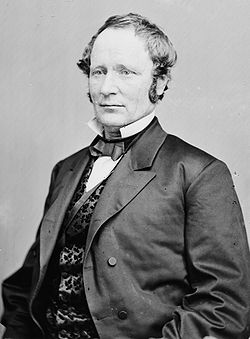A request that this article title be changed to Indiana's congressional delegations is under discussion . Please do not move this article until the discussion is closed. |

These are tables of congressional delegations from Indiana to the United States House of Representatives and the United States Senate.
Contents
- U.S. House of Representatives
- Current members
- Historical timeline
- U.S. Senate
- See also
- Notes
- References
Since its statehood in 1816, the U.S. state of Indiana has sent congressional delegations to the United States Senate and United States House of Representatives. Each state elects two senators statewide to serve for six years, and their elections are staggered to be held in two of every three even-numbered years—Indiana's Senate election years are to Classes I and III. Before the Seventeenth Amendment in 1913, senators were elected by the Indiana General Assembly. Members of the House of Representatives are elected to two-year terms, one from each of Indiana's nine congressional districts. Before becoming a state, the Indiana Territory elected delegates at-large and sent three to Congress, but the territorial delegates were restricted from voting on legislation.
The longest-serving of any of Indiana's Congressmen is Senator Richard Lugar, serving from 1977 to 2013. The longest-serving House member is Lee H. Hamilton, who served from 1965 to 1999. There have been 347 people who have represented Indiana in Congress: 321 in the House, 27 in the Senate, and 18 in both houses, with an average term of seven years. Indiana has elected seven women [1] and three African Americans [2] to Congress.
The current dean of the Indiana delegation is Representative André Carson (IN-7), having served in Congress since 2008.
























